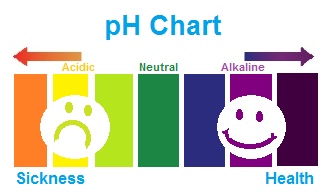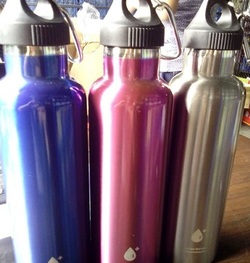This is the Alkaline Water Plus Water Ionizer FAQs Page
Actually our entire website is a huge FAQs website but on this particular page we have some of the very most common questions that people ask and their answers.
Q: Why are alkaline water machines (water ionizers) so expensive?
A: First of all, if you compare alkaline water machines to medical equipment, they're not expensive at all. But I'll explain how the expense of an alkaline water machine breaks down. 1) The water ionizer contains platinum coated plates. Platinum is quite expensive (around $1000/oz). Cheap water ionizers that use alloys are not able to ionize as efficiently or safely. 2) Design, electronics, fine workmanship and warranties are also quite costly. Read more about the cost of water ionizers.
Q: Why do water ionizers (alkaline water machines) need platinum coating the electrodes?
A: The reason that alkaline water machines must use platinum is: Platinum (along with titanium) is a very hard & dense metal and will not break down and leach into your alkaline ionized water... even over time. So the electrodes will virtually last forever, and Platinum catalyzes [speeds up] the electrolysis process allowing water to ionize instantly as the water passes through the alkaline water machine's electrolysis chamber. A water ionizer (alkaline water machine) wouldn't ionize water well at all without platinum. Read more about water ionizer plates.
Q: Which brand/model of alkaline water machine (water ionizer) makes the best water?
A: There are several water ionizers that I think are in the category of "best". As long as the water ionizer is manufactured properly, can achieve a wide enough range of pH, produces an abundance of antioxidants at each of the alkaline pH-levels, and has an adequate warranty I would call it one of the best ones. Then there are other features to consider... You’re invited to stop-by my “Water Ionizer Comparison Chart” page.
Q: Are there any cautions about drinking ionized alkaline water?
A: You should start slowly. Set the controls to the lowest alkaline level. Assuming the water agrees with you, increase the amount you drink and the level of ionization intensity. High levels of alkalinity -- up to 9.5-10.0 -- are best for drinking water; the highest levels can be used for cooking. Use the "Purified Water" setting for taking any medications that your doctor advises not to be taken with alkaline water. Do not drink the acid water that comes out of the lower spout. Read more about Water Ionizer Use.
Q: What is pH and how do I test my body's pH?

A: PH comes from Latin and translates to "power of Hydrogen" or "potential Hydrogen". It basically means how acid, alkaline or neutral something is. Hydrogen has the ability to combine with oxygen in different ways and by doing so it can carry an extra electron or not, which makes the molecule alkaline or acidic, and thus have either a negative charge or a positive charge. On a scale of 1 - 14, 1 - 6 would be ranges of acidity (with 1 being the most acid); 8 - 14 would be ranges of alkalinity (with 14 being the most alkaline); and 7 would be neutral. Our saliva should be slightly alkaline (a little above 7.3) for us to be in a healthy state. Read about our Free Urine/Saliva pH Test Kit.
Q: Which container is best and what's the best way to store ionized water?

A: A vacuum stainless bottle is the very best. The second best is a mason jar. Read more about storing ionized water.
Q: Does it change the pH or ORP of ionized water to mix it with flavor-aids or alcohol?
A: Yes it does. I've tried Kool-Aid, Crystal Lite and other drink mixes, and these kind of chemically-created drink mixes reduce the benefits (of pH and ORP) of ionized water. They'll actually make it acidic, except for alcohol. For some reason adding scotch to the water didn't reduce the pH or ORP. Read more about adding flavors & chemicals to your ionized water.
Q: What are the differences between electric and non-electric water ionizers?
A: Electric water ionizers are necessarily more expensive because to be safe and effective they must have pure titanium plates covered with pure, medical-grade platinum. The platinum, alone, has a major influence on the cost. At the time of this writing it costs around $1500.00/ounce. Electric water ionizers are better and healthier because they will ionize all of the healthy, alkaline minerals, such as calcium, magnesium and potassium, and non-electric water ionizers will only ionize magnesium. Ionizing the minerals makes them more readily available to absorb into your cells. All non-electric water ionizers are basically filters, not machines, and are cheaper to make. They filter the water and then add magnesium to the water in the presence of magnets (such as magnetized ceramics). This method was originally researched and developed by Dr. Hayashi, but now there are hundreds of devices that use this principle. We have tested many of these types of devices and found that some worked well but were too expensive and others worked poorly. However, the one that we found that not only works the best is also the most reasonably priced. That's the WellBlue pitcher. We will continue to research this but, regardless of the outcome, the electric ionizers will always be better than the non-electric because the body needs calcium a lot more than magnesium, and non-electric water ionizers can only ionize the magnesium. Neither electric nor non-electric water ionizers are more "natural" than the other. It's just that the electric one ionizes all the minerals that are naturally in your water and the non-electric adds magnesium, which will spontaneously ionize in the presence of magnets. Read more about the differences between electric and non-electric water ionizers.
